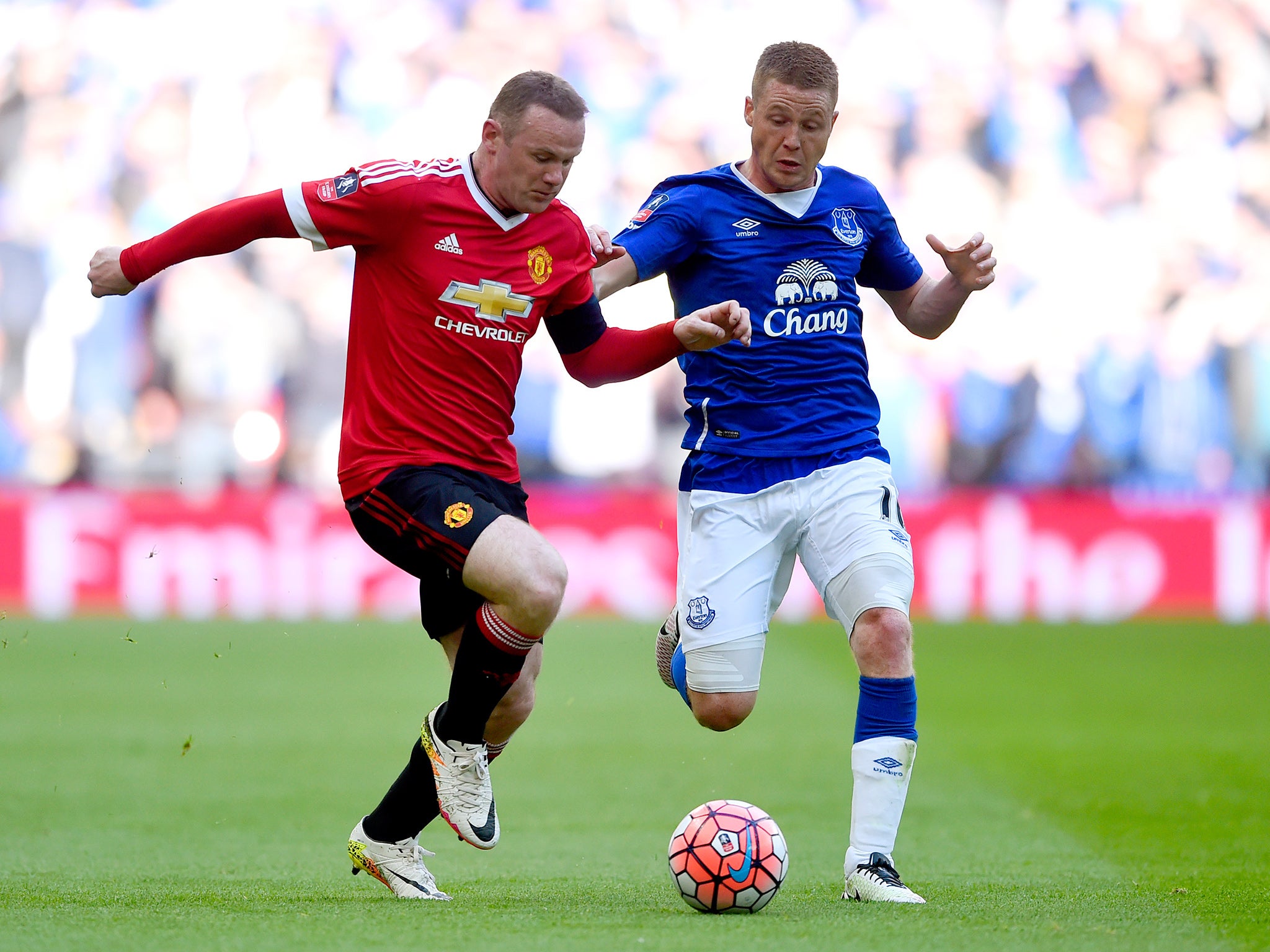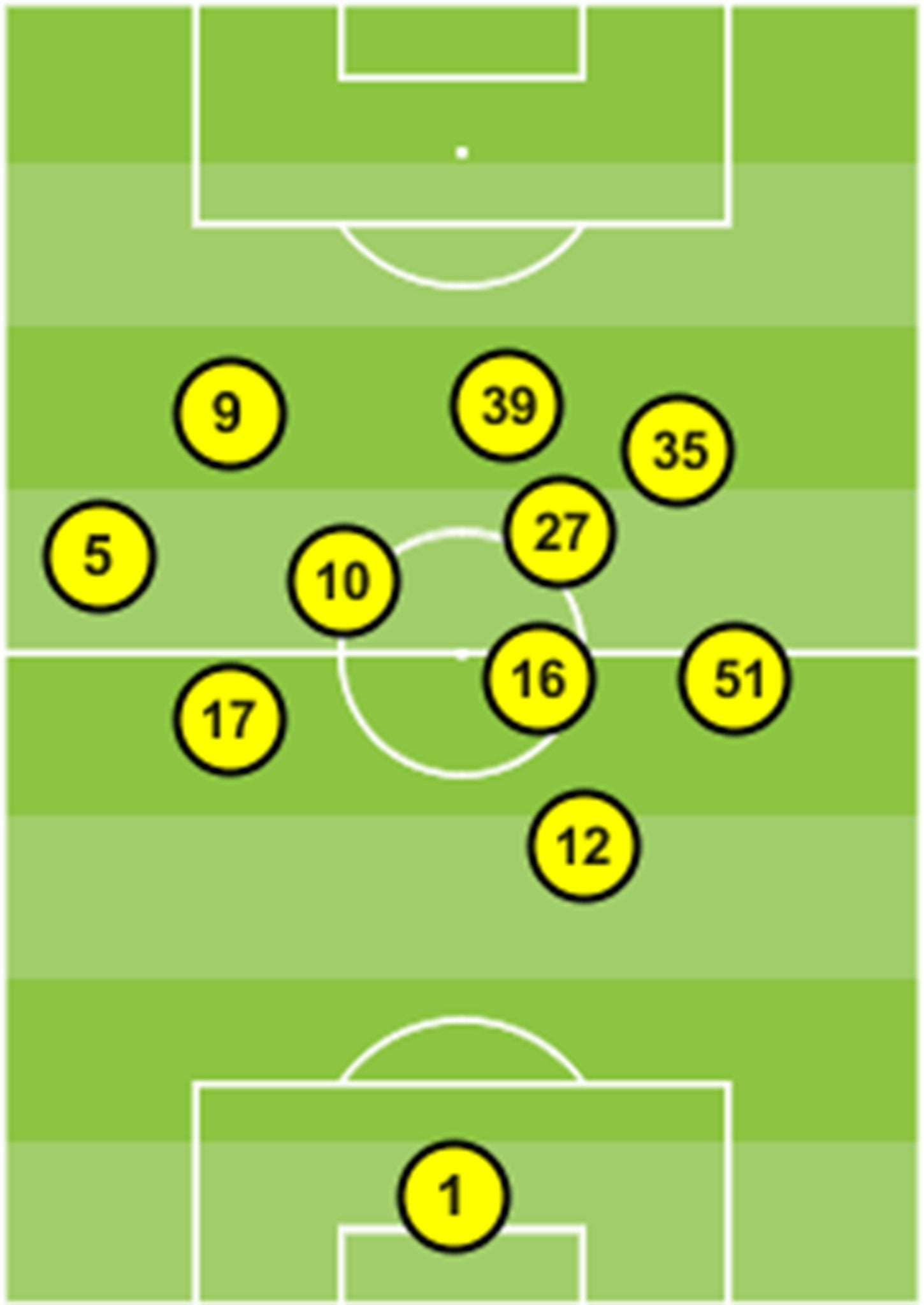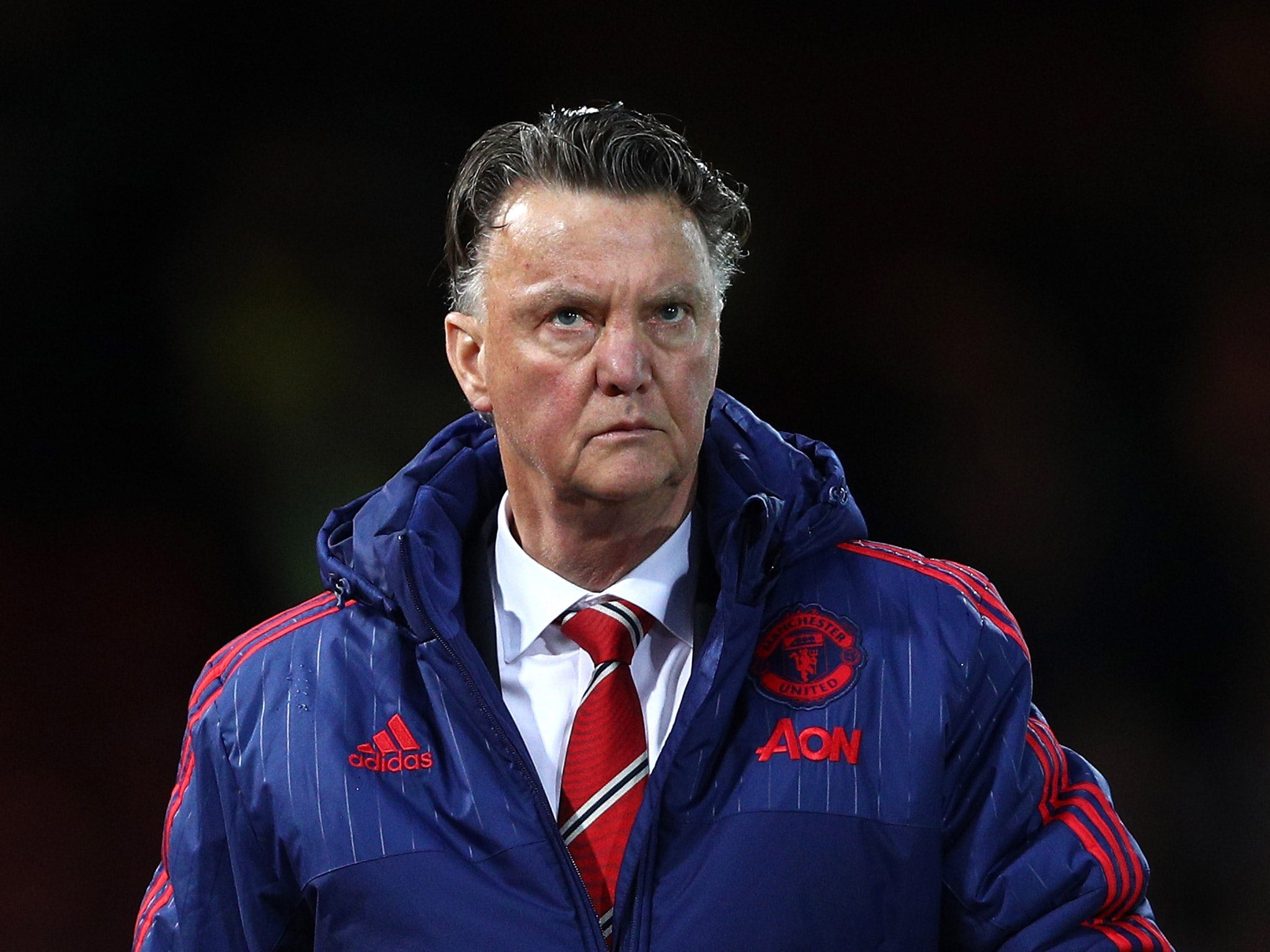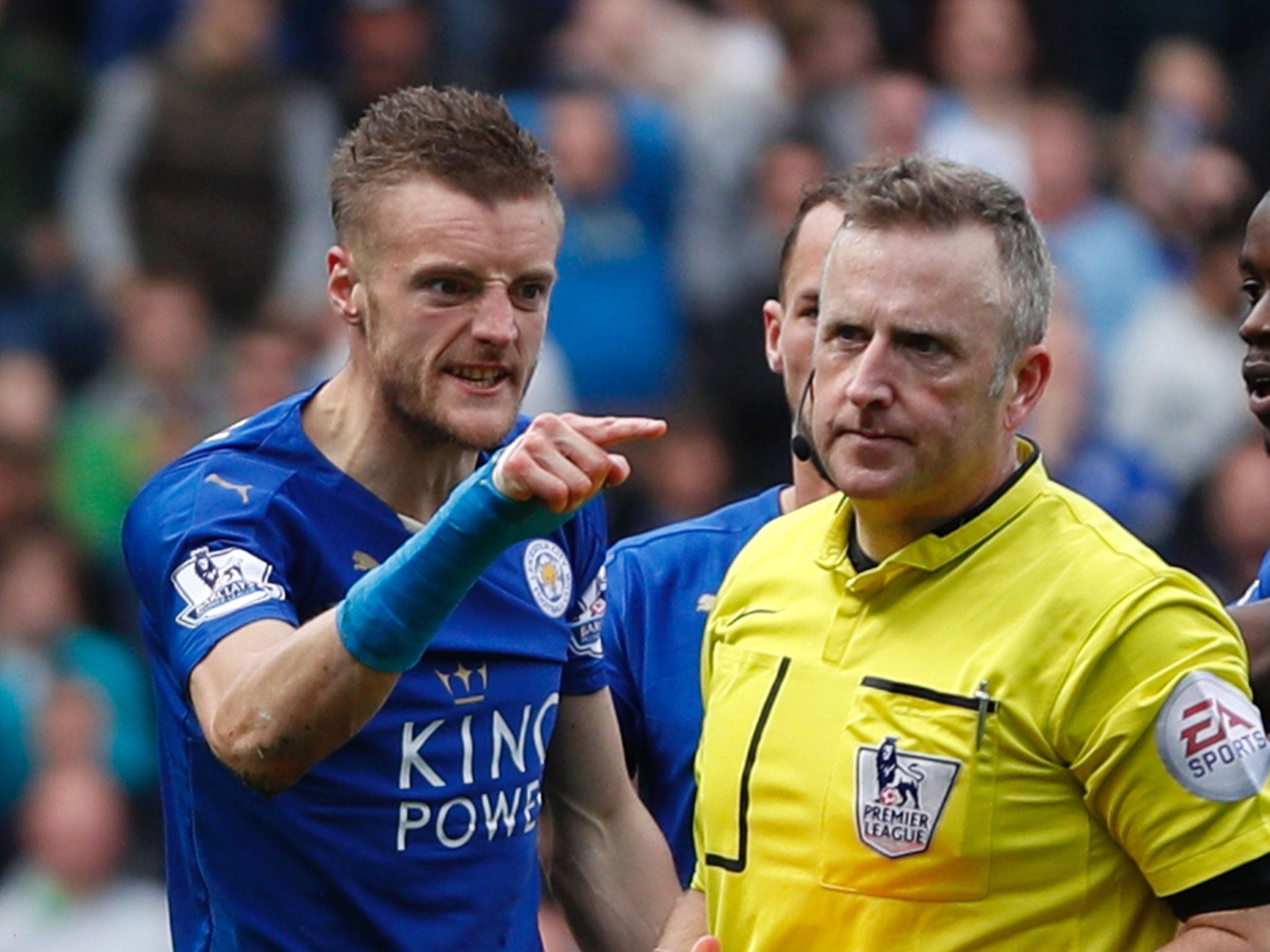Wayne Rooney needs to stay in midfield for Manchester United, writes Danny Higginbotham
INSIDE FOOTBALL: Wayne Rooney excelled in midfield for Manchester United last Saturday, and now he must stay there for club and country.

Your support helps us to tell the story
From reproductive rights to climate change to Big Tech, The Independent is on the ground when the story is developing. Whether it's investigating the financials of Elon Musk's pro-Trump PAC or producing our latest documentary, 'The A Word', which shines a light on the American women fighting for reproductive rights, we know how important it is to parse out the facts from the messaging.
At such a critical moment in US history, we need reporters on the ground. Your donation allows us to keep sending journalists to speak to both sides of the story.
The Independent is trusted by Americans across the entire political spectrum. And unlike many other quality news outlets, we choose not to lock Americans out of our reporting and analysis with paywalls. We believe quality journalism should be available to everyone, paid for by those who can afford it.
Your support makes all the difference.At Wembley last Saturday we saw a glimpse into the future of Manchester United and England, with Wayne Rooney in midfield. It was the right call, and Rooney excelled, as I thought he would. And I am confident that he will flourish in that role in the final years of his career.
Regular readers will know that I believe that Louis van Gaal has misused Rooney this season, to the cost of player, Manchester United, and ultimately Van Gaal himself. At 30 years old, Rooney no longer has the pace to play as a number 9 who stretches the play and runs in behind. It has taken Van Gaal too long to recognise this, too long to build a system which creates space for Rooney, to provide the perfect platform for his football brain which is as sharp as ever.
Everyone in football knows the basic principle: you make the pitch small when defending and big when attacking. But too many times this season United have failed to do that. They have been too compact in possession, with players coming towards the ball. They have not stretched the play with runners in behind, and that has limited their space.
That is what happens when Rooney plays as a number 9. Because he does not have the pace he used to, opposition defences will push up, not worried about being caught in behind. This squeezes United’s playing area.
What United have desperately needed is pace in behind. That means either playing Rooney as a striker who drops deep, with runners going beyond him, or him playing deeper with pace or height in front of him, which in turn makes the opposition drop deeper.
What we saw last Saturday, against Everton in the FA Cup semi-final, was the next step beyond that. Rooney played in a deep-lying midfield role in a 4-2-3-1. I know Van Gaal briefly used Rooney there last season, in the middle of a 4-1-4-1, but this was the deepest role we have seen Rooney play, and it worked perfectly.
The goal was to create space for Rooney, for his natural creativity and imagination. The method was to have players in front of Rooney who would push Everton back.
That is what Van Gaal did with three of the front four in Anthony Martial, Marcus Rashford and Jesse Lingard. They are all so quick that defenders are terrified of them chasing on to the ball over the top or the ball down the sides, because you are always going to lose a foot-race with them. I know as a former defender myself that you are always going to drop off and give yourself an extra two or three yards against opponents like that. You simply cannot afford to push up.

Then, in the number 10 position, Van Gaal used Marouane Fellaini. I know that Fellaini has his critics but he can be very effective in that attacking role. There are two ways of stretching opposition, with pace or with height, and Fellaini can certainly do the latter. Opponents will know that if David de Gea or a United defender hits the ball long to Fellaini that he can win the first ball and flick it on to a runner.
Again, this means that the opposition defence will sit back further, leaving more space for Rooney in midfield. No centre-back would want to go and challenge with Fellaini for the first ball, knowing that he would have the beating of them in the air, and therefore that any flick might go to Martial, Rashford or Lingard running into the gaping hole that they had vacated. That in turn means that an opposition midfielder would have challenge Fellaini instead, sitting on his toes, trying to mark in front of him.
The outcome of all this is that the opposition defence is pushed back, and one midfielder is occupied, meaning more space in midfield for United. Not one of Fellaini, Martial, Rashford and Lingard is coming short for the ball. Which means that Rooney has much of the midfield zone to himself - as you can see on this graphic from Opta - free to pick passes and show his quality. This is what happened on Saturday, when Rooney gave his best performance in a long time.
I am sure that this is the right policy for United in future, but if there is one victim of it then it is Juan Mata. He is an excellent player but in this 4-2-3-1 system it is a straight choice between him and Rooney. Mata cannot play in any of the front four roles because he does not stretch play, but wants to come short for the ball. This means that he would cramp Rooney’s space. This could well be the end for him at United.

I hope that Van Gaal will keep this team for the game against Leicester City on Sunday. Claudio Ranieri’s will play deep, especially without Jamie Vardy, as I explained in my column here last week. This means that there will be very little space in behind, but Rooney will get time on the ball in midfield. It will be his job to play intricate passes, to move the Leicester back four around, hoping to slide Lingard or Martial in down the side of Leicester’s centre-backs. Although we know how difficult that is in practice.
While Rooney and Fabregas are different players, Rooney can do a similar role
Beyond this season, this should be where Rooney plays more often than anywhere else. He still has three years left on his contract at Old Trafford and, at 30, there is no reason why he cannot continue to play there until 2019. Yes, his pace his going, but his football brain is as sharp as ever.
Everyone expects Jose Mourinho to be in charge next year and I can see him using Rooney in the same role. Remember at Chelsea he paired Nemanja Matic and Cesc Fabregas in the middle. While Rooney and Fabregas are different players, Rooney can do a similar role, as long as he has a sitting player – in this case Michael Carrick or Morgan Schneiderlin – alongside him to take the defensive burden.
And of course Roy Hodgson should use Rooney in midfield in France this summer. He has a dilemma over how to play his captain along with Harry Kane and Jamie Vardy, who have 24 and 22 Premier League goals respectively this season. But if he plays his favoured diamond formation, Rooney can play at the tip, knowing that with Kane and Vardy (or Daniel Sturridge or Danny Welbeck), and Dele Alli behind him, there will be enough pace to make room for him. Saturday showed the way.
We cannot hold referees accountable until we change the laws
There has been so much criticism for referees recently but I believe their jobs are being made too difficult by unenforceable laws. The one thing we want to see from our officials is consistency but that is impossible where there are so many grey areas.

What I would like to see, to make their jobs easier, is the clarifying up of unclear offences such as ‘deliberate handball’. I certainly gave away a few penalties for handball in my time, but not once did I handle the ball on purpose. A better law would penalise handballs when the hand or arm was the only thing stopping the ball from travelling in its direction. So a hand in front of the chest or face would be not be penalised, but a hand out at the side would be.
Only when we have clear laws can we hope to have real accountability from referees. I would like to see referees answer for their decisions, in interviews with journalists who they know well, who know how they work, and who would follow the same referee throughout the season. Then we will know why they make the decisions they do. And those who make mistakes, rather than being demoted to the Championship, which is disrespectful to that league, can have an extra week of training. But first we must clear up the laws.
Join our commenting forum
Join thought-provoking conversations, follow other Independent readers and see their replies
Comments